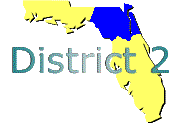| 1.0 | TRAVEL AND TRAFFIC MANAGEMENT |
| 1.6 | TRAFFIC CONTROL |
| 1.6.0 | ITS shall provide a Traffic Control capability. Traffic Control provides the capability to efficiently manage the movement of traffic on streets and highways. Four functions are provided which are (1) Traffic Flow Optimization, (2) Traffic Surveillance, (3) Control Function, and (4) Provide Information. This will also include control of network signal systems with eventual integration of freeway control. |
| 1.6.1 | Traffic Control shall include a Flow Optimize function to provide the capability to optimize traffic flow. |
| 1.6.1.7 | Implementation of the Control Function shall include strategies that account for at least the following: |
| 1.6.1.7(a) | Human factors. |
| 1.6.3 | Traffic Control shall include a Control Function. |
| 1.6.3.4 | Device Control shall communicate control data to the following devices. |
| 1.6.3.4(e) | Human operator support. |
| 1.6.3.4.1 | Traffic Surveillance shall include a Data Process function to process the traffic data which are acquired. |
| 1.6.4 | The Control Function shall provide traffic control information to other elements of the ITS, including but not limited to the following: |
| 1.6.4(a) | In-vehicle navigation. |
| 1.6.4(b) | Trip planning. |
| 1.6.4(c) | Routing systems. |
| 1.6.4(d) | Fleet management systems. |
| 1.7 | INCIDENT MANAGEMENT |
| 1.7.0 | ITS shall include an Incident Management (IM) function. Incident Management will identify incidents, formulate response actions, and support initiation and ongoing coordination of those response actions. Six major functions are provided which are (1) Scheduled Planned Incidents, (2) Identify Incidents, (3) Formulate response Actions, (4) Support Coordinated Implementation of Response Actions, (5) Support Initialization of Response to Actions, and (6) Predict Hazardous Conditions. |
| 1.7.1 | Incident Management shall provide an incident identification function to identify incidents. |
| 1.7.1.1 | The incident identification function shall include the capability to identify predicted incidents. |
| 1.7.1.1.1 | The incident identification function shall use information from the following types of sources, where available, to identify predicted incidents: |
| 1.7.1.1.1(d) | Media sources. |
| 1.7.3 | Incident Management shall include a response implementation function to provide those services needed to implement a coordinated incident response using all appropriate agencies. |
| 1.7.3.3 | The response implementation function shall provide the capability to disseminate information relating to response status to other agencies and user services. |
| 1.7.4 | Incident Management shall provide the capability to predict the time and location of hazardous conditions that may cause an incident. |
| | |




